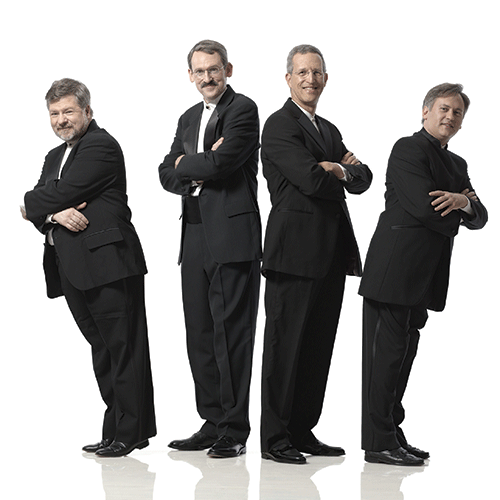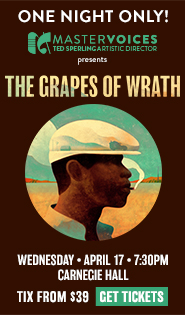Sparks fly in Orion Quartet’s new-music program for Chamber Music Society

The Orion Quartet performed music of Currier, Dean and Dzubay in the Chamber Music Society of Lincoln Center concert Thursday night.
What makes a string quartet sound new? Three contemporary composers and the Orion String Quartet left the tape loops and chainsaws at home Thursday evening, using mostly the musical means of past masters — the smart dialogue of Haydn, the rich sonorities of Brahms, the atmospherics of Bartók — to make fresh and exciting new music.
These very string-quartet-y string quartets, including a world premiere, made up the Chamber Music Society of Lincoln Center’s “New Music” program Thursday in the Center’s Rose Rehearsal Studio. The new arrival was two pieces from Sebastian Currier’s Etudes and Lullabies for String Quartet. The rest — Brett Dean’s String Quartet No. 2 (“And once I played Ophelia”) and David Dzubay’s Quartet No. 1, (“Astral”) — date to 2013 and 2008, respectively. Written expressly for Orion, all three demonstrated a mastery of the string quartet’s traditional idioms while enlivening the form.
Currier’s collection, as he explained in a program note and in remarks from the stage Thursday, was composed to give string quartets some of the same mix-and-match repertoire of short pieces that pianists and violinists enjoy. The composer said he fully intended the work to be mined and excerpted on concert programs. To emphasize the point, the set’s six etudes and six lullabies are being world-premiered in pairs by various quartets in different locations.
Currier said that Thursday’s pair — Etude No. 1, “Dynamics,” and Lullaby No. 5, “Lulling” — exemplified music’s two “fundamental and opposing aspects … the ability to energize and to soothe.” One wonders what baby would doze off during Currier’s Lullaby No. 5 — a slow movement full of dramatic tension and passionate episodes—but the tenderness of its soft, high cello solo amid a haze of harmonics was undeniably touching.
“Dynamics” maintained its etude character throughout, with scampering triplets interacting with jagged phrases in shifting meter. Sudden contrasts of loud and soft accounted for the title, but the piece was a dynamo in more than volume — a high-speed rhythmic puzzle expertly solved by the Orion players (violinists Daniel Phillips and Todd Phillips, violist Steven Tenenbom, and cellist Timothy Eddy).
It was the quartet’s name, Dzubay said in the program notes and to the audience on Thursday, that inspired him to write a piece for the Orion ensemble about stars and space travel. And indeed, Dzubay’s “Astral” quartet opened Thursday’s program with galactic road music, a bold violin solo over a steady pulse of busy dissonances, jarred now and then by what the composer called “syncopated asteroids.”
This opening “Voyage” was followed by “Starry Night,” a cool, lucid slow movement occasionally roiled by swoops and swirls straight out of Van Gogh’s famous painting. “S.E.T.I.” celebrated astronomer Carl Sagan’s search for signs of extraterrestrial life in radio transmissions with the most unconventional quartet writing of the night; the sound collage of clicks, pops, and squeals brought to mind the radio astronomers twirling their dials in search of that elusive message from beyond.
In contrast, a Native American funeral song about walking the Milky Way with the departed got a traditionally lush string quartet treatment in “Wintu Dream Song,” with campfire harmonies in thirds and sixths mingling with velvety dissonances to make a nourishing bowl of warm soup for a winter evening. The closing movement, “Supernova,” didn’t explode all at once, but sent off jets of fast scales and trills amid sudden silences, only later ratcheting up the tempo to finish in a blaze of furious pulsations.
Dean followed his two colleagues to the stage to introduce the evening’s final work, in which soprano Tony Arnold joined the quartet in a provocative psychological portrait of one of Shakespeare’s more enigmatic characters, Ophelia in Hamlet. Dean said that he and his collaborator Matthew Jocelyn — who compiled the text from lines said by, to, and about Ophelia in the play — agreed that the character has “a feistier personality than the one we often are presented.”
That proved to be an understatement, as Dean’s jagged vocal writing, and Arnold’s stunning rendition of it, positively boiled with pain and rage. Even submissive lines like “I shall obey, my lord” seethed with barely suppressed anger.
Arnold also captured the edge of dominant male behavior from Hamlet (“Get thee to a nunnery”) to Laertes (”Best safety lies in fear”) in a voice capable of handling the most radical vocal challenges, from impossibly high pianissimo entrances to tortuous melismas on one syllable. Conversely (and somewhat perversely), Dean and Arnold rendered Hamlet’s love song “Doubt thou the stars are fire” in choked, isolated syllables.
Over the course of this work in five linked movements, Dean’s treatment of the soprano-and-quartet combination ranged from singer with a backup band to weaving the vocal line through the quartet texture like a fifth instrument. The results were always effective, thanks to the quartet’s sensitive collaboration and Arnold’s virtuosity of vocal technique and in-your-face expressiveness.
In pre-performance remarks from the stage, Orion’s Daniel Phillips noted that, as far as he could recall, this would be the first time his quartet had performed a program consisting entirely of works written for it. Last November, this same concert series presented a program in which all five composers and all but one of the performers were women — and the subject of gender never came up, in the music or the commentary. While the debate over “ghettoizing” new music in separate concerts rages on, the Chamber Music Society’s New Music series continues to provide rare experiences like these.
The Chamber Music Society of Lincoln Center returns with music of Dvořák and Brahms 5 p.m. Sunday and 7:30 p.m. Tuesday at Alice Tully Hall. chambermusicsociety.org;


